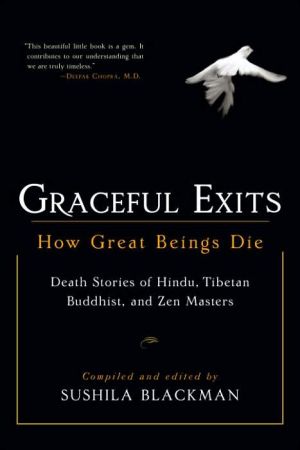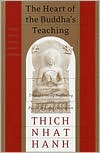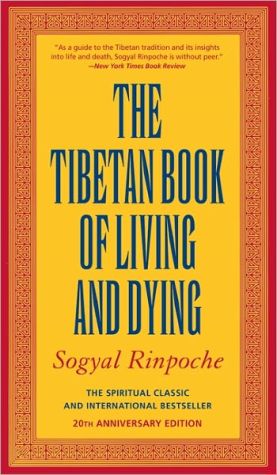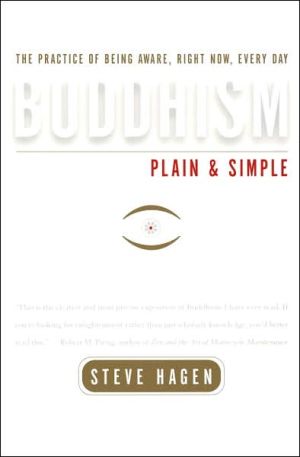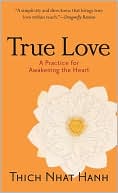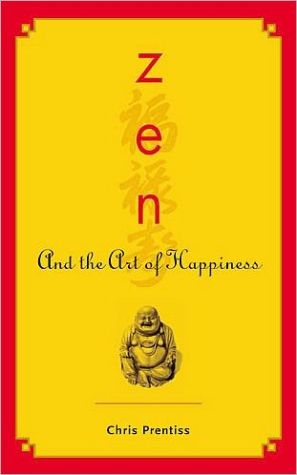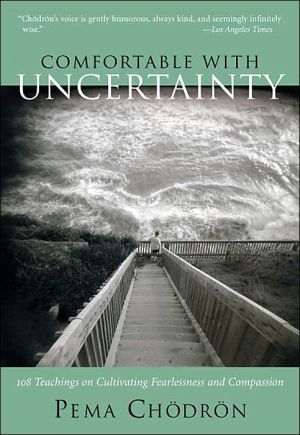Graceful Exits: How Great Beings Die
Death is a subject obscured by fear and denial. When we do think of dying, we are more often concerned with how to avoid the pain and suffering that may accompany our death than we are with really confronting the meaning of death and how to approach it. Sushila Blackman places death—and life—in a truer perspective, by telling us of others who have left this world with dignity.\ Graceful Exits offers valuable guidance in the form of 108 stories recounting the ways in which Hindu, Tibetan...
Search in google:
Death is a subject obscured by fear and denial. When we do think of dying, we are more often concerned with how to avoid the pain and suffering that may accompany our death than we are with really confronting the meaning of death and how to approach it. Sushila Blackman places death—and life—in a truer perspective, by telling us of others who have left this world with dignity. Graceful Exits offers valuable guidance in the form of 108 stories recounting the ways in which Hindu, Tibetan Buddhist, and Zen masters, both ancient and modern, have confronted their own deaths. By directly presenting the grace, clarity, and even humor with which great spiritual teachers have met the end of their days, Blackman provides inspiration and nourishment to anyone truly concerned with the fundamental issues of life and death. Journal of Buddhist Ethics - Mavis Fenn L....[T]he author has succeeded in her purpose: to make the passage of others through death "more grace-filled, more filled with light, more saturated with God's sublime love and understanding"....Graceful Exits will prove to be reassuring; the anthology will likely be used by many on a regular basis for contemplation and meditation.
\ Mavis FennL....[T]he author has succeeded in her purpose: to make the passage of others through death "more grace-filled, more filled with light, more saturated with God's sublime love and understanding"....Graceful Exits will prove to be reassuring; the anthology will likely be used by many on a regular basis for contemplation and meditation. \ —Journal of Buddhist Ethics\ \ \ \ \ Publishers Weekly - Publisher's Weekly\ Often, the stories of great people's deaths focus on the bizarre details. Blackman's book does not focus on such details, but it focuses on death as a great teaching. Death in the Buddhist and Hindu spiritual traditions, according to the author, is not confined to a particular moment but is a process that may take days even after the usual medical indications of death have appeared. The experience of death is part of the discipline that these "great beings," or spiritual teachers, have practiced, and death is an opportunity for the greatest meditation and fulfillment. The 108 stories collected here show that these spiritual teachers did not fear death but rather welcomed it. These masters embrace death not in the sterility of the hospital room but in the company of students and friends, and, thus, death becomes the final lesson that the teachers teach to their students. Written in lucid prose, the book is a training manual for making graceful exits from this life.\ \ \ Library JournalBlackman narrates the death stories of over 100 Tibetan, Hindu, and Zen masters, ancient and modern. The striking element in these accounts is a sense of being fully prepared to meet death. Blackman grappled with lung cancer and came to peace with her own fears about death as she compiled this book, completed only a few months before she died. As Blackman notes, the Judaeo-Christian perspective of death is not represented here, but this fills a demand for inspirational books about death and Eastern spirituality.\ \ \ \ \ Library JournalBlackman narrates the death stories of over 100 Tibetan, Hindu, and Zen masters, ancient and modern. The striking element in these accounts is a sense of being fully prepared to meet death. Blackman grappled with lung cancer and came to peace with her own fears about death as she compiled this book, completed only a few months before she died. As Blackman notes, the Judaeo-Christian perspective of death is not represented here, but this fills a demand for inspirational books about death and Eastern spirituality.\ \ \ \ \ Mavis L. Fenn...[T]he author has succeeded in her purpose: to make the passage of others through death "more grace-filled, more filled with light, more saturated with God's sublime love and understanding"....Graceful Exits will prove to be reassuring; the anthology will likely be used by many on a regular basis for contemplation and meditation. -- Journal of Buddhist Ethics\ \
